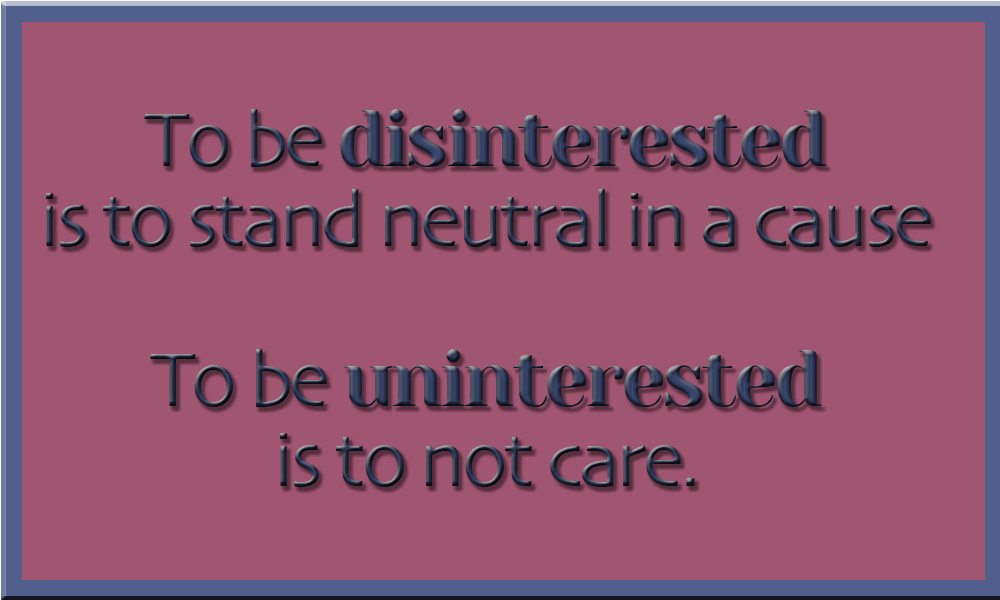Is there a difference?
Uninterested and disinterested both sound similar because of their prefixes. UN- and DIS- have negative connotations, so it is not unusual to think that uninterested and disinterested are versions of “not interested.” Yet uninterested and disinterested have distinct definitions. Let’s take a look:
UNINTERESTED: someone who has no interest in something; unenthusiastic, unconcerned, indifferent
DISINTERESTED: impartial, not biased; has no distinct stake in the outcome
Most of the time, the word you are probably looking for is uninterested. For example, “The child was bored and uninterested in the adult conversation at the dinner table.” This means that the child had no interest in the discussion topic. On the other hand, disinterested is often used in the context of law, such as a “disinterested party” in a mediation session, or a “disinterested judge” in a court hearing. This means that the person is unbiased and impartial (a good thing!).
There is a tendency nowadays to use the words interchangeably, but it’s best to use them properly in formal writing. Here’s some mnemonics for remembering:
UNINTERESTED: UNenthusiastic, UNconcerned,
DISINTERESTED: no DIStinct stake in the outcome


One thought on “Uninterested and Disinterested”
I remind myself that being disinterested is also being dispassionate.